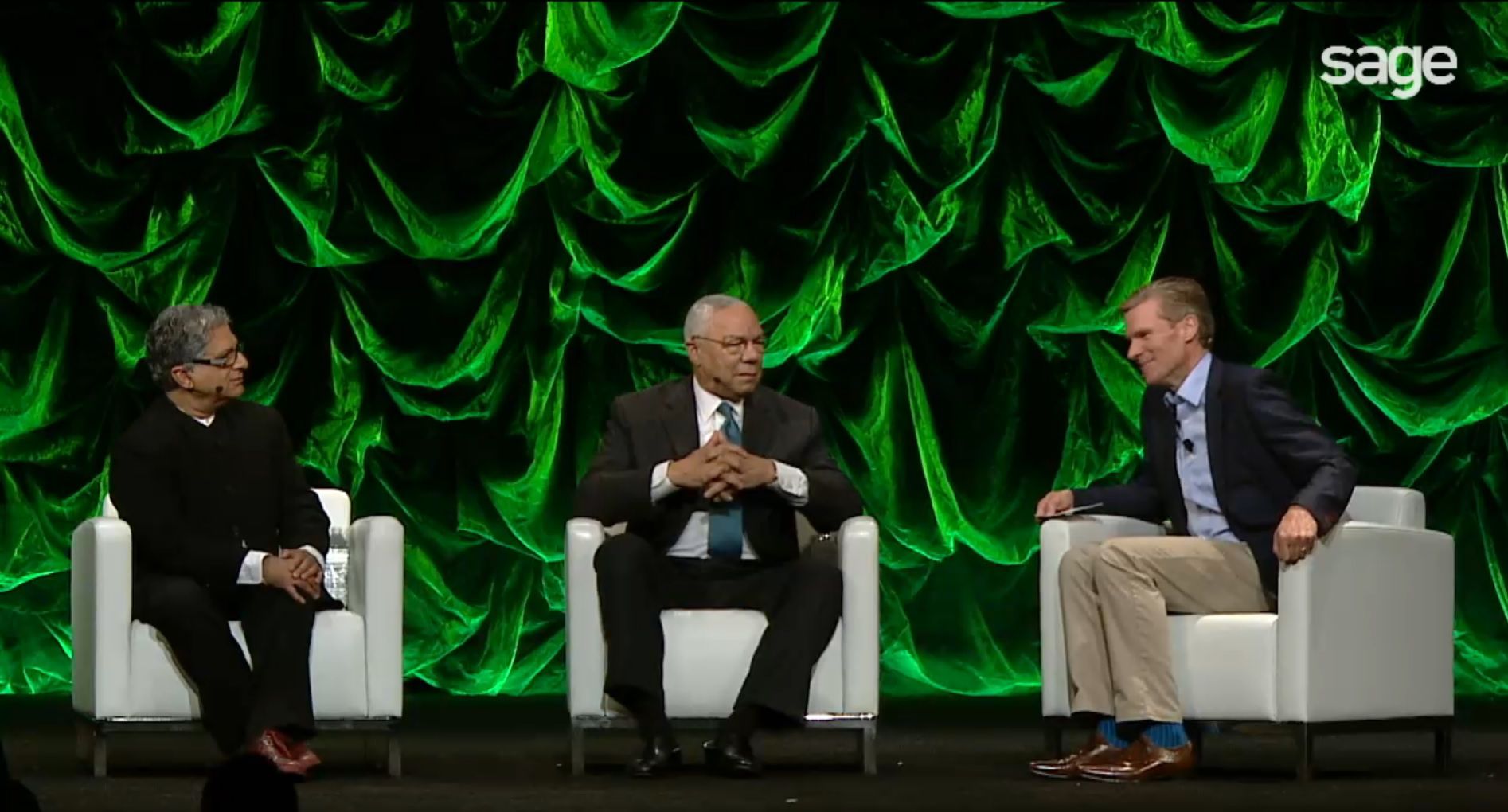
Recently, I was speaking at the Sage Summit about the topic I wrote about last week in this column, namely how little changes can create big results. I love being a speaker at small business events like these because, not only is it a chance to meet and speak with some really engaged small business owners, but it is also an opportunity to learn from them and from the other speakers.
In that vein, the joint keynoters at this event were especially interesting, particularly considering their very different perspectives. Neither needs an introduction, but let’s give them one, anyway:
Colin Powell is of course a retired 4-star general, former Chairman of the Joint Chiefs of Staff, and the Bush Secretary of State. Deepak Chopra is a best-selling author, a pioneer in the world of alternative medicine and consciousness, and a champion for what he calls “enlightened leadership.” These two impressive leaders shared the stage to discuss from their own unique vantage point of how to navigate change in a changing world.
While it might seem that the two would view the world, and the world of business, very differently, I was struck more by was how much they had in common than their differences.
For starters, both displayed an extraordinary amount of kindness, generosity of spirit, and warmth. There are lots of reasons someone might get ahead in the world and end up sharing their opinions in front of almost 10,000 people, but I think that an overlooked one is emotional intelligence.
The term “emotional intelligence” was coined by Daniel Golman in his book of the same name in 1995, and applied to business in a Harvard Business School article in 1998. Golman’s essential takeaway is that smarts are not enough if you want to be an effective leader. His research suggests that real leadership requires that the leader also be self-aware, empathetic, self-motivated, and socially savvy.
All of these traits were on display in spades with General Powell and Deepak Chopra. Whether it was the general warmly touching Deepak’s arm time and again as he made a point or Chopra effusively recommending Powell’s book and ideas, the two men consistently seemed to be proving Golman’s point that leadership requires emotional intelligence as much as it does steely smarts.
And just how does one navigate change in this crazy, mixed-up world? Again what the two men agreed on was much more obvious than where they disagreed.
General Powell discussed his 13 Rules of Leadership, and Chopra shared his philosophy of work based on his book, The 7 Spiritual Laws of Success. While there is not room here to look at all 20 points (13 rules and 7 laws), I want to highlight a few that the speakers shared from the stage.
Chopra suggests that being successful in the world of work, especially in this world of rapid change, requires more than just having a good idea and executing on it. Rather he said, it requires three things:
- Inspiration
- Sharing that vision in a way that fosters emotional connections, and
- Creating a team where each person’s strengths complement one another.
For Chopra, a main key to navigating your business in this era is to foster an emotionally connected team based on a shared vision so that the whole is greater than the sum of the parts. Going forward he said, there will be increased connections between work, home, career, and community. Well-being will stem from successfully navigating that intersection.
Certainly power of teamwork is central General Powell’s thinking as well. For him, creating a great business team is not unlike creating a good unit. Getting people to buy into the mission and using their individual skills for the good of the whole is what creates a successful team. And, he noted, vets make great employees – “They show up on time, work hard, and know what the mission is.”
In the end, Chopra had this to say about General Powell: “Colin is a man who served his country with love in his heart.” It seemed to be an apt description of both men, albeit both serving in interesting and very different ways.
This article originally appeared on USA Today.








